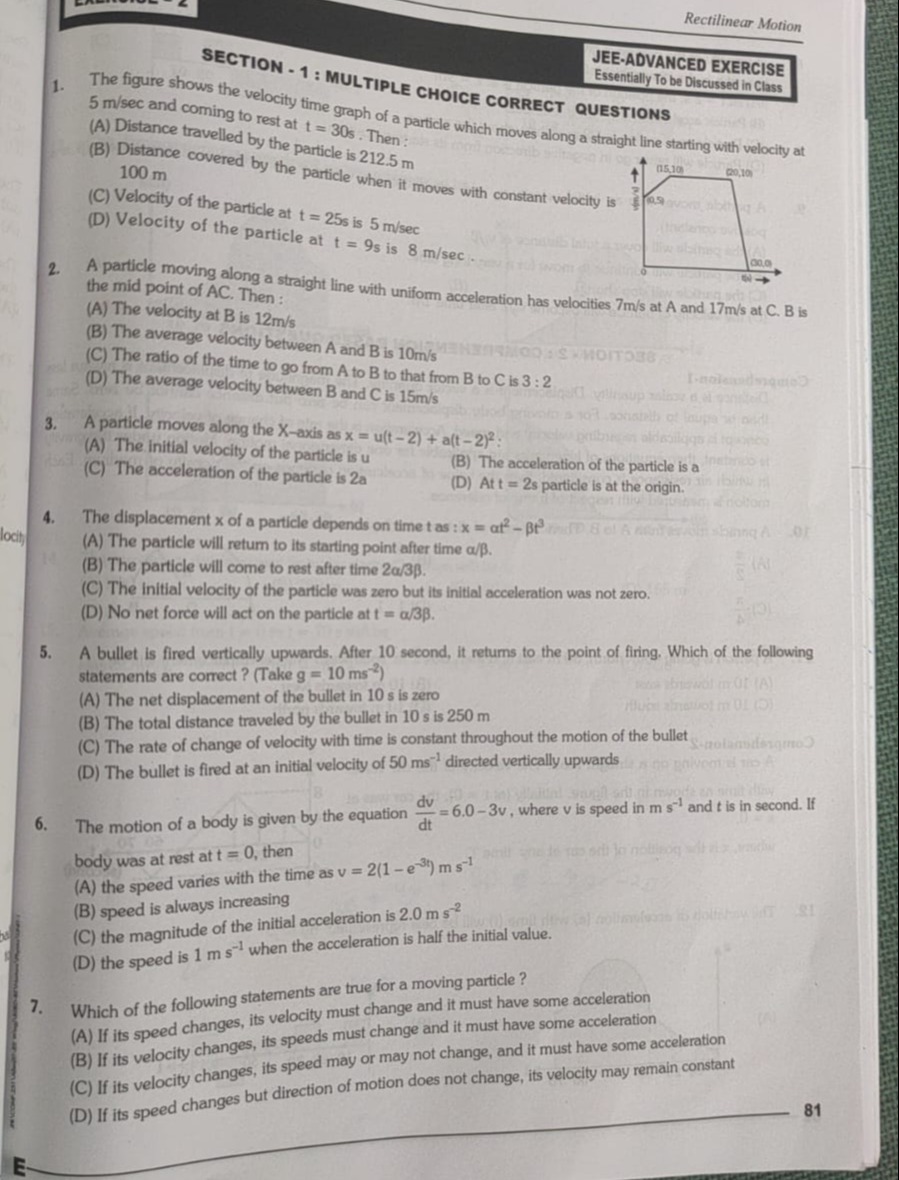Question
Question: The figure shows the velocity time graph of a particle which moves along a straight line starting wi...
The figure shows the velocity time graph of a particle which moves along a straight line starting with velocity at 5 m/sec and coming to rest at t = 30s. Then:

Distance travelled by the particle is 212.5 m
Distance covered by the particle when it moves with constant velocity is 100 m
Velocity of the particle at t = 25s is 5 m/sec
Velocity of the particle at t = 9s is 8 m/sec
None of the options are correct.
Solution
The given velocity-time graph shows the following points:
- At t=0 s, v=5 m/s.
- At t=10 s, v=15 m/s.
- At t=20 s, v=15 m/s.
- At t=30 s, v=0 m/s.
Let's analyze each segment:
-
0 to 10s (Uniform acceleration):
- Acceleration a1=10−015−5=1010=1 m/s2.
- Velocity equation: v(t)=5+t.
- Distance travelled (Area of trapezoid) = 21(5+15)×10=21(20)×10=100 m.
-
10 to 20s (Constant velocity):
- Velocity v=15 m/s.
- Acceleration a2=0 m/s2.
- Distance travelled (Area of rectangle) = 15×(20−10)=15×10=150 m.
-
20 to 30s (Uniform deceleration):
- Acceleration a3=30−200−15=10−15=−1.5 m/s2.
- Velocity equation: v(t)=15+(−1.5)(t−20)=15−1.5t+30=45−1.5t.
- Distance travelled (Area of triangle) = 21×(30−20)×15=21×10×15=75 m.
Now let's evaluate the options:
(A) Distance travelled by the particle is 212.5 m Total distance travelled = Sum of distances from all segments = 100+150+75=325 m. So, option (A) is incorrect.
(B) Distance covered by the particle when it moves with constant velocity is 100 m The particle moves with constant velocity (15 m/s) from t=10 s to t=20 s. Distance covered = 15 m/s×(20−10) s=15×10=150 m. So, option (B) is incorrect.
(C) Velocity of the particle at t = 25s is 5 m/sec At t=25 s, the particle is in the third segment (20-30s). Using the velocity equation for this segment: v(25)=45−1.5(25)=45−37.5=7.5 m/s. So, option (C) is incorrect.
(D) Velocity of the particle at t = 9s is 8 m/sec At t=9 s, the particle is in the first segment (0-10s). Using the velocity equation for this segment: v(9)=5+9=14 m/s. So, option (D) is incorrect.
Based on the analysis of the provided graph and options, none of the options are correct. There might be an error in the question or the options provided.
